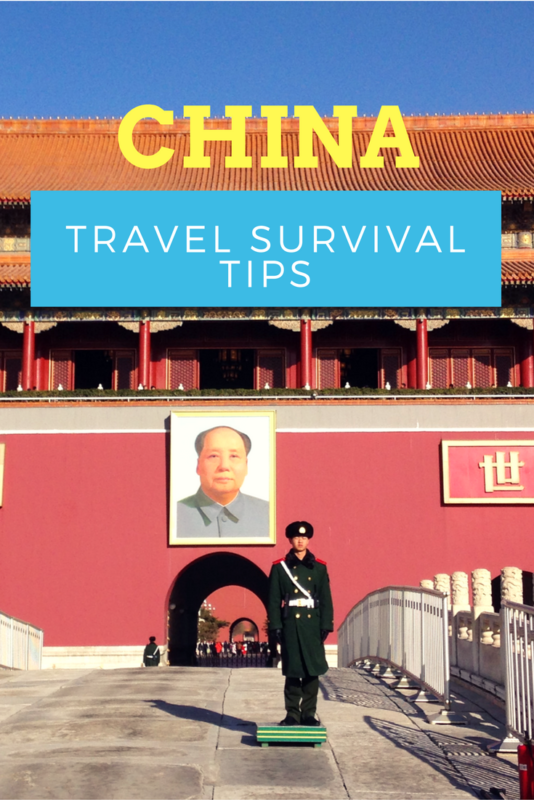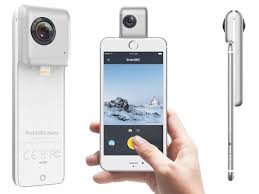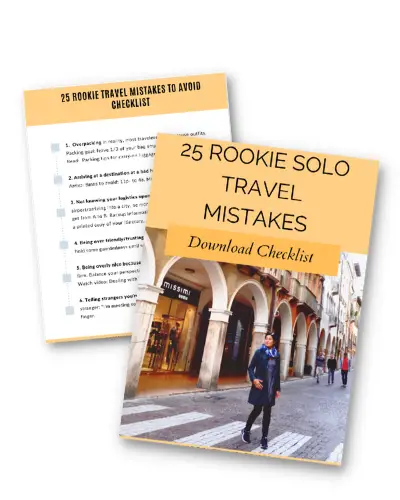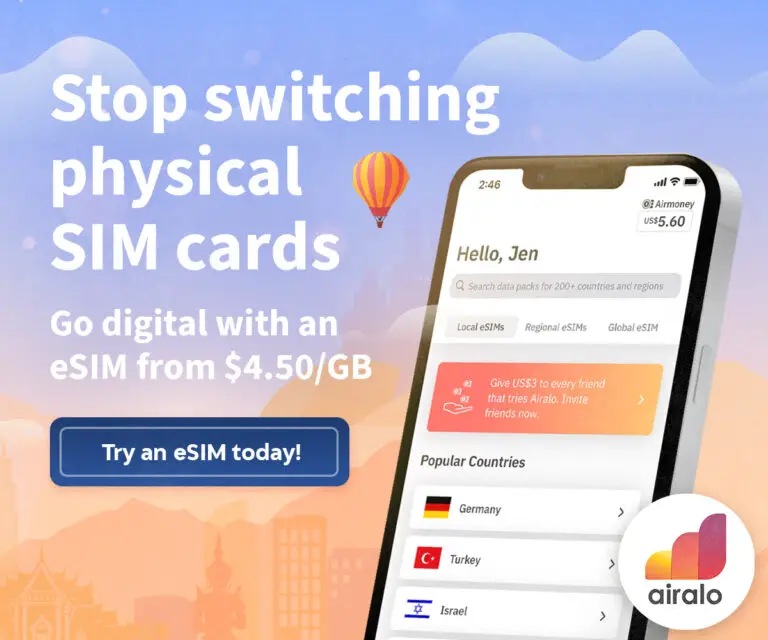Last Updated on January 8, 2024 by Christine Kaaloa

China is a large country and can feel like a cultural mystery to many travelers. With 1.6 billion people and over 5000 years of history, and a complex language, it can feel overwhelming. Often the travelers which know how to travel China best are its expats. I interviewed Shanghai expat of 5 years, Raimonda, to share her essential travel tips for China. These are things you should know before you go to China.
Travel Tips for China
Table of Contents: Essential Travel Tips for China : Things to know before you go to China
1. Trip Planning Essentials for China
Language Barriers
Outside of major cities and popular destinations, such as Beijing, Shanghai, Guangzhou, Xian, Nanjing, Xiamen, Guilin, Hangzhou, Suzhou, you’ll find less English signs and less people who speak English. Thus, a good tip is to always have your travel information written in Chinese.
Also, a handy mobile app to have is Google Translate. It allows you to scan in Chinese characters for a translation or to speak your question for you in Chinese. Drawback : it’s not always accurate.
Name confusion
Thus, you might find the some cities named similarly, although they are in different provinces. Just because the Western alphabet lists the same spelling for their names, does not mean they are different cities. Instead, China has four intonations in its speech and although a name might be spelled similarly according to Western alphabets, doesn’t mean they are pronounced or called the same. They can easily have different characters and intonations and this can change the meaning of the word, entirely.
Trip Planning Websites for China
Just as each country has their favorite travel or hotel booking sites, so does China. Ctrip is China’s biggest travel planning search engine. Similar to Expedia, Orbitz and Kayak , you can book everything you need in China from flights, railway tickets, car and driver services and day tours. They are so big that recently, they acquired Skyscanner.
Websites for Finding Travel partners
- Meetup.com
- Innovations.org
2. Getting Around in China
Common ways to get around China are train, bus, arranging a car/driver or taxi. Ctrip is the site, recommended by many for booking and arranging your travel needs in China. Speaking to expats on the topic of getting around outside the urban environments and to lesser known areas, I was continually referred to the idea of hiring a driver or pickup service, even if you’re looking to do your travel on a budget. I feel this has a lot to do with encountering language barriers and the fact, some destinations are spread out.
You can take the regular train – it’s slow but budget friendly. The high speed rail is wicked fast. Beijing to Shanghai is roughly 5 hours and 560RMB (around $80 USD). You can show up and buy tickets on the day of travel, but if you’re traveling in large groups or during Chinese New Year, it’s best to secure your spot in advance. Traveling on Chinese New Year expect the trains to be crowded and sold out. It’s the biggest holiday for Chinese and is a national and cultural celebration. According to another traveler, flying large distances, you can get from Nanjing to Xiamen in around 3 hours for approximately $60USD. Buses are frequent, but always pay attention to the station as some cities have multiple stations.
Public buses and metros are good in urban areas and large cities. Note: buses have signs written in Chinese. It’s handy to have your Google Translate app out or get the bus number and route information from your hotel or hostel beforehand. Always take the businesscard of the place you’re staying at as it will have Chinese for the driver in the case you choose to take a taxi back.
Wechat app is also a popular form of booking travel in China, especially among expats. You can search keywords and find travel agencies who speak English and can handle your needs as well.
3. Communication
Wechat is China’s number one social app. But it’s not just a social app. Wechat handles everything in China from buying tickets to an event, messaging others, paying for groceries, rental agreements, etc… Anyone you meet in China, who wants to connect to you, will ask if you’re on Wechat. It takes around 5 minutes for a general idea but you’ll need to poke around the app to really understand how it connects into a deeper social structure. This mobile app can only be used online, so you’ll need either a Chinese SIM card with a data plan (roughly around $25 per 5 GB) which you can easily buy at the airport or free WiFi.

A VPN service
A VPN service is necessary when trip planning for China, especially if you want to use the internet or access your email. Many internet and social media sites are blocked in China and a VPN (virtual private network) helps gain you access to those sites. There’s a handful of free ones, but their connection is never consistent. I use VYPR vpn and it’s one I’d highly recommend.
Read: Why you need a VPN for travel
Chinese SIM cards
SIM Cards can easily be bought by travelers at major airports. Smaller airports are unlikely to have SIM kiosks so make sure you get them at the main airports like Beijing, Shanghai, etc… China’s major carriers are China Telecom and China Unicom. Cost of a SIM cost me around $25 for 10GB of data and unlimited talk/texting.
4. Food & Health
China is the one place I’ve been a little reluctant to try street food due to unsavory practices I’ve read about. Interviewing Raimonda in my video verified it, but on my trip, there were expats who were afraid of even eating restaurant rice. In order to cut corners some vendors have resorted to unethical means. In the past there’s been scams with street vendors scraping cooking oil from garbage waste, fake dumpling meat and recently vendors were caught selling plastic rice. If you’re interested in street food, it’s best to read up and research blogs and forums for the best and recommended places for street food.
Avoid unsavory practices and practice my Food Safety Tips.
Pepto Bismal tablets once a day help coat your stomach. I’ve heard this from many travelers specifically for China. As a traveler, I just always pack anti-diarrheal tablets as a safety for any country.
5. Cultural Etiquette
China is a ‘Saving Face’ culture. Thus, the way to get around conflicts is to never be antagonistic or put a Chinese person down in public or in front of others. The best way is to be polite, despite the situation. Allowing a person to have their honor or dignity as you negotiate through a challenging situation is the best way to perhaps win a battle. Otherwise, it can quickly escalate to into a fight where the other person may refuse to back down.
6. Where is the Toilet?
Toilets can be found in airport, local markets, supermalls and metro platforms. Always look for the standard womens/mens toilet signs to direct you there. Unless you’re in a highly westernized environment, expect a squat toilet. Don’t know how to use one? Check out my tips.
*Always bring tissues for toilet paper and hand sanitizer. Chinese restrooms don’t always have toilet paper. If you ladies feel uncomfortable with the idea of using a squat toilet, you might want to invest in a feminine urinary device (read about it here)
7. Getting a Chinese Visa
72 hour Transit Visa
China has a 72 hour transit visa. Exceptions are if you’re from Hong Kong, Japan, Taiwan, Macau and the Bahamas (please check your country requirements beforehand). For trips longer than 72 hours, you’ll need to get a regular visa.
Getting a Tourist Visa for U.S. Citizens
For Americans, getting a China visa is not an easy or cheap process. Your passport and visa application has to be hand-delivered to the Chinese embassy and the embassy has particular hours. It is not open on all work days.
Also, if you cannot deliver your application packet yourself, you must hire a courier service to do it. I live in Hawaii, so I used a service called CVSC (China Visa Service Center or www.mychinavisa.com).The cost for the visa is standard $140 but I paid an additional $74 for the courier service and its shipping through Fedex and $149 for Express Delivery of 4-6 days as I was getting it for a press trip at the last minute. My entire visa cost me around $379.
For the cost of $140, you can get either a single entry for 3 months or a multiple entry for ten years. Rates are same.
8. Pollution
The pollution in China can get bad. Very bad. Some of the Chinese face masks I’ve seen look like air raid masks. It’s helpful to invest in a face mask or use your scarf as a wrap, in the case you encounter it. Stay hydrated and during bad pollution days, avoid outdoor or sporting activities.
| Recommended Products for China. Click to Shop | ||
 |
 |
 |
—– Related Articles —–
Packing Essentials for Winter Travel
Jilin: Top Highights of China’s Winter Wonderland
Qinghai Highlights
Trip planning for China | Qinghai Trip
Shanghai Layover Guide




















